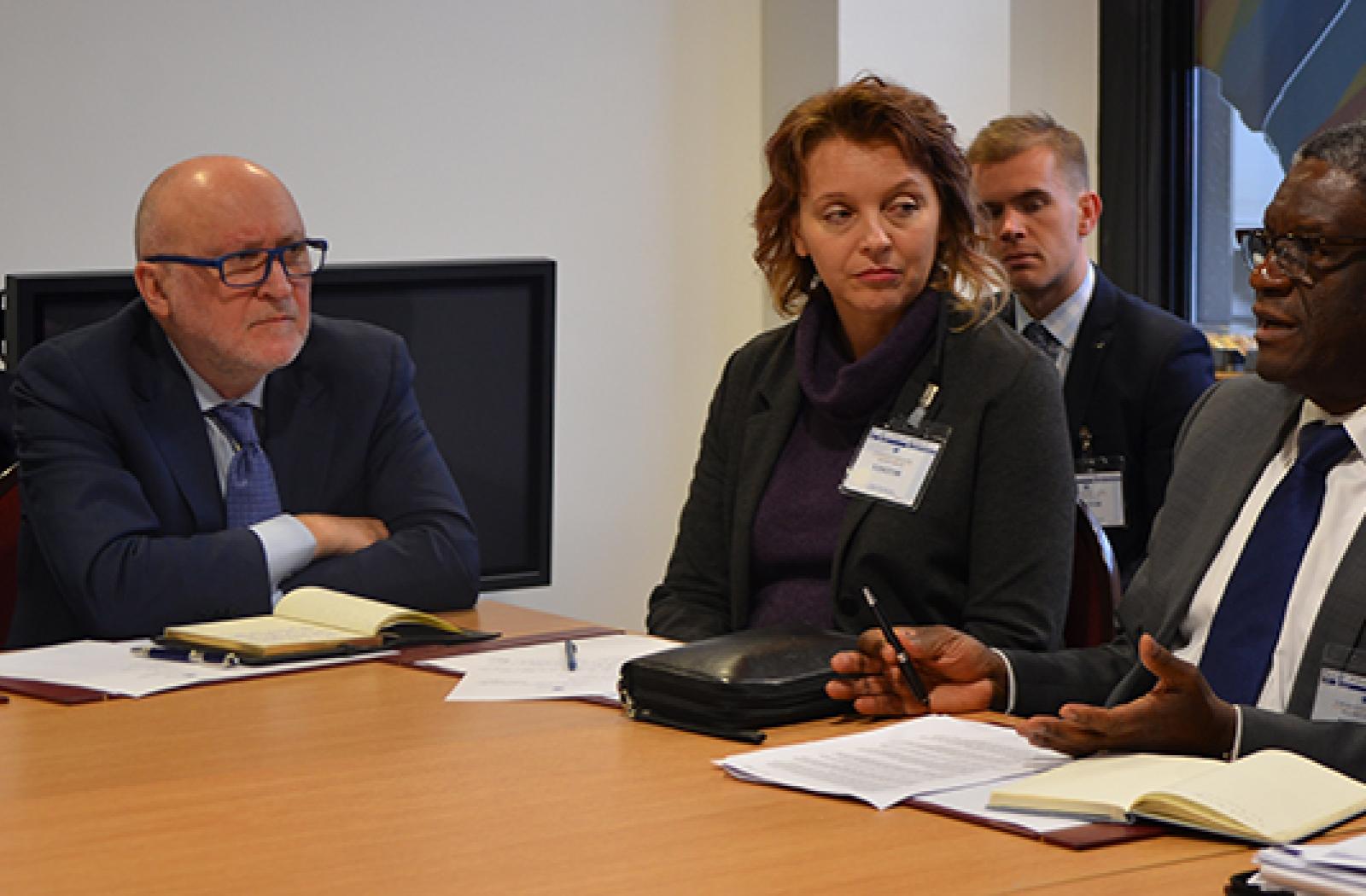The horror of sexual violence in conflict must be challenged by educating women about their human rights and empowering men and boys as champions against such abuses, says leading women's rights activist Dr Denis Mukwege.

The horror of sexual violence in conflict must be challenged by educating women about their human rights and empowering men and boys as champions against such abuses.
The comments were made by one of the world’s foremost women’s rights activists during a presentation at the Commonwealth Secretariat in London.
Dr Denis Mukwege, a leading surgeon, gynaecologist and women’s rights activist, added that the battle against sexual violence must also include men and boys if we wish to see a turning of the tide.
He said, “We should not be complacent because we do not have open and violent conflict in a country. What we should be doing during those times of peace is ensuring that we effectively promote and protect the human rights of women.
Dr Mukwege, who has helped to care for more than 50,000 survivors of sexual violence since 1999, added, “In my experience we can’t really overcome or succeed to fight against sexual violence if we don’t engage on this issue early. And we need to focus strongly on the education of men and boys, raising their awareness and understanding that we are all equal and that we should respect each other.”
Dr Mukwege on need to educate men and boys - resized lower thirds
The presentation formed part of the Commonwealth Secretariat’s ‘A conversation with…’ human rights series. It was the latest event to take place during the ‘16 days of Activism against Gender-Based Violence’ leading up to International Human Rights Day on 10 December.
Head of Human Rights at the Commonwealth Secretariat, Karen McKenzie, said, “I am both humbled and deeply moved by the brutal and harrowing experiences which Dr Mukwege has shared with us. He is known globally as the doctor ‘who mends women’ and who has made it his life’s work to aid the reconstruction and healing process of thousands of women whose bodies will forever carry the scars of war.
“Through his work, his experiences and the expertise he has developed, he is a treasure trove of lessons which have been learnt and good practices which ought to be replicated. I saw many synergies with our work on another form of violence against women, that of child, early and forced marriage.
She added, “Dr Mukwege’s experiences in working on the prevention pillar includes educating men and boys, mobilising traditional leaders, and placing survivors at the centre of these efforts. On this we speak the same language, since we are utilising networks of traditional leaders, young men and survivors, for example in Malawi who are carrying out excellent work with limited resources as part of the Commonwealth Network Against Child Marriage.”


